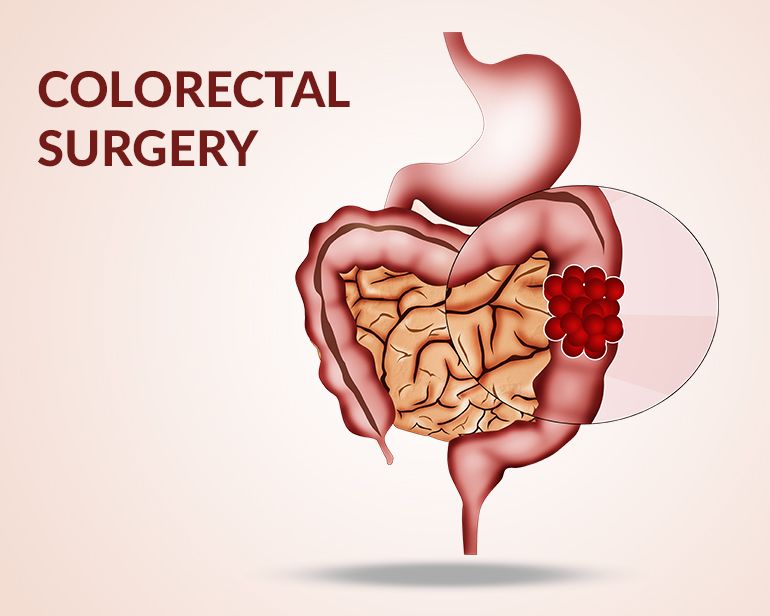Coloproctology Surgeries: Colon, Rectum & Anus Treatment

Common Symptoms of Colorectal Disorders
If you’re experiencing any of the following symptoms, you may need to consult a colorectal specialist:
- Persistent constipation or diarrhea
- Blood in stools
- Pain or itching around the anal region
- Unexplained weight loss
- Anal swelling, lumps, or pus discharge
- Difficulty in passing stools or incomplete evacuation
- Mucus in stool
- Sudden change in bowel habits
- Abdominal bloating or discomfort
These symptoms may indicate conditions like hemorrhoids, anal fissures, colorectal polyps, or even cancer — and early intervention can significantly improve outcomes.
Types of Coloproctology Surgeries
Depending on the diagnosis, various surgical options are available:
1. Hemorrhoidectomy
Removal of swollen hemorrhoids (piles) causing bleeding, pain, and itching.
2. Fistulotomy/Fistulectomy
Treatment for anal fistulas — abnormal tunnels between the anal canal and skin.
3. Anal Fissure Surgery
Lateral internal sphincterotomy to relieve chronic anal fissures.
4. Colectomy
Partial or total removal of the colon due to cancer, diverticulitis, or Crohn’s disease.
5. Polypectomy
Surgical removal of colorectal polyps that could turn cancerous if left untreated.
6. Rectal Prolapse Repair
Fixes the protrusion of the rectum through the anus.
7. Abscess Drainage
For infected anal glands causing abscesses and severe pain.
8. Colostomy/Ileostomy
Creation of a stoma (external opening) when part of the colon needs to be bypassed.
9. Laparoscopic Colorectal Surgery
Minimally invasive option offering faster recovery and less postoperative pain.
Treatment & Procedure
Coloproctology treatment begins with a detailed diagnosis, which may include:
- Digital rectal examination
- Colonoscopy or sigmoidoscopy
- MRI, CT scan, or ultrasound
- Biopsy (if cancer is suspected)
Once diagnosed, your doctor will recommend either conservative management or surgery. Many procedures today are minimally invasive, performed via laparoscopy or robotic techniques. Postoperative care may include dietary changes, medications, and physiotherapy for pelvic floor strength.
Prevention Tips
While not all colorectal conditions are preventable, you can reduce your risk through:
- A high-fiber diet rich in fruits, vegetables, and whole grains
- Staying hydrated
- Regular exercise
- Avoiding prolonged sitting on the toilet
- Avoiding smoking and limiting alcohol
- Early screening for those with a family history of colorectal cancer or IBD
Benefits of Coloproctology Surgery
- Relief from chronic pain, bleeding, and discomfort
- Restored normal bowel function
- Treatment of potentially life-threatening conditions like cancer
- Minimally invasive options mean faster recovery and fewer complications
- Improved quality of life and self-confidence
